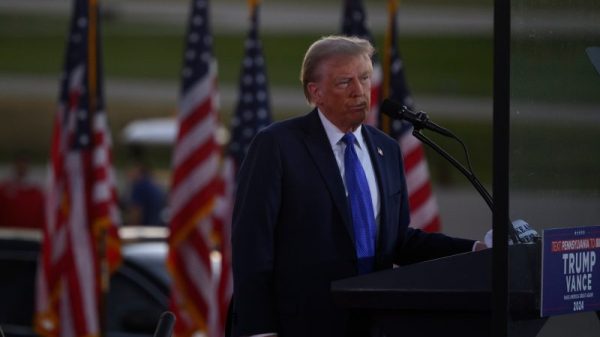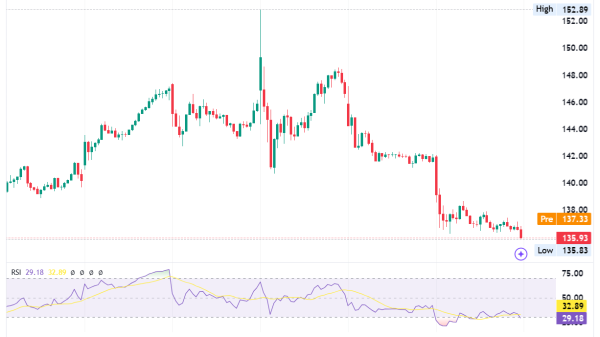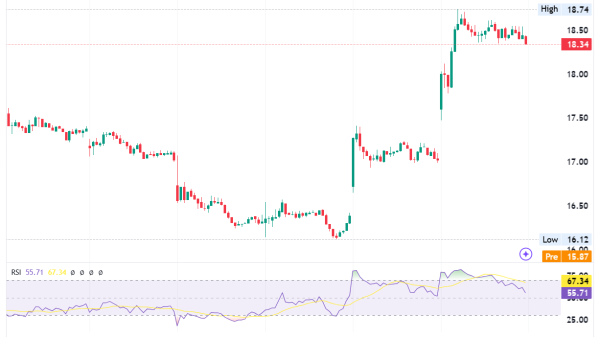U.S. stocks saw their third-straight trading day of heavy declines as recession fears continued to mount and Wall Street abandoned a popular trade that had helped counter high interest rates.
The Dow Jones Industrial Average was down roughly 900 points or nearly 2.5% Monday morning, while the S&P 500 declined 2.3% and the tech-focused Nasdaq fell 2.5%.
On Friday, the Bureau of Labor Statistics reported worse-than-expected jobs data, showing the U.S. unemployment rate had climbed to 4.3% and that the economy had added just 114,000 jobs.
That sparked fears that the Federal Reserve should already have cut interest rates by this point and would instead tip the economy into a recession.
The central bank has spent the past several years keeping those rates at levels last seen prior to the Great Recession in the hopes of tamping down inflation.
But some economic and financial data show the U.S. economy rapidly weakening as a consequence.
In addition to the jobs report, traders have been reacting to a weaker outlook from e-commerce giant Amazon, as well as a growing belief that much of the recent run-up in tech stocks, which pushed the Nasdaq to a record high just a month ago, has been overdone.
Among the companies seeing major declines in their share prices early Monday:
While macroeconomic forces weighed on markets, other commentators pointed out that much of the sell-off was also due to traders abandoning a popular strategy for countering the Fed’s higher interest rates.
As the U.S. central bank made borrowing more expensive stateside, the Bank of Japan had, until recently, kept its interest rates lower to increase investment in the yen. It did the trick: Wall Street began borrowing against the yen at the lower interest rates in order to invest more cheaply in desired assets.
Now, the trade has flipped: the BOJ has signaled it intends to increase interest rates, while Fed Chair Jerome Powell said a September rate is almost certainly in the offing.
The result is that the U.S. dollar has erased most of its gains on the year.
The Tokyo Stock Exchange on Monday. Noriko Hayashi / Bloomberg via Getty Images
Meanwhile, investors are increasingly putting their money into U.S. Treasury bonds — deemed ‘haven’ assets that act as stores of wealth in volatile moments.
The yield on the 10-year note hit as low as 3.68%, its lowest level since June 2023. While that’s a signal that recession fears are increasing, it could also bring relief to the housing market, since mortgage rates track the 10-year yield.
Cryptocurrencies including bitcoin and ethereum also saw sizable price declines. Bitcoin fell nearly 14% to about $50,000, its lowest level since this spring, while ethereum dropped 17% to about $2,200, effectively erasing its gains for the year.






























